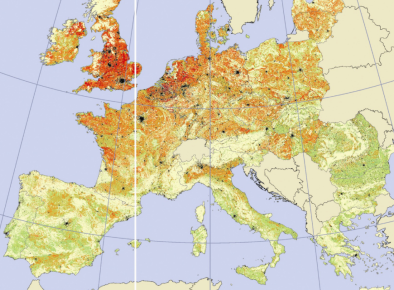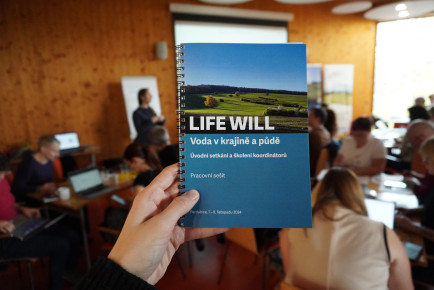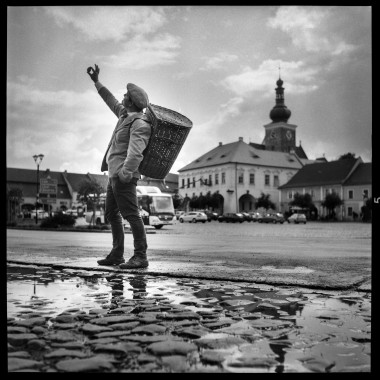Cambodia is suffering from climate change. Czechs help in defence against flooding
Published: Dec 17, 2023 Reading time: 5 minutes Share: Share an articleThe monsoon season in South Asian Cambodia brings storms and heavy downpours every year. The danger of flooding is a constant threat to local populations from May to October. Early warning systems have improved the situation, which we will implement in the more remote parts of Cambodia. Project manager Lucie Marková has monitored this project’s progress.
Read an article written for MF Dnes based on an interview with her.
The Kingdom of Cambodia languishes in the shadow of tourism giants Thailand and Vietnam. It is now relatively safe, but the effects of the civil, which finally came to an end towards the end of the last century, are still evident today. Both on the infrastructure and on the people themselves.
People in Need has been working in Cambodia since 2008, and this year Lucie Marková returned from her mission in the country. As the project manager of PIN’s humanitarian and development department, she followed the stories of the people PIN helps in the country.
She also visited two important projects that are significantly helping the local people. "We went there to map projects that deal with events intensified by climate change. The climate crisis is hitting Cambodia really hard," says Marková.
One of the projects Marková has been following is the "Early Warning System" for floods. Cambodia is highly vulnerable to floods and inundation.
"With climate change, it's even worse. People were not usually warned in time before a flood and did not manage to get to safety," she explains the importance of the system for the approximately sixteen million Cambodians. She says another big problem during flash floods was that local people were not able to save their livestock, which they depend on for their livelihoods.
National system
In Cambodia, there are two alternating seasons - rainy and dry. Therefore, most tourists come from late September to February, because of the prevailing lower temperatures. Despite significant economic growth, it remains one of the poorest countries in Southeast Asia. Thirty per cent of people here are still at risk of lacking basic necessities. Moreover, Cambodia is the country most vulnerable to natural disasters in the whole of Asia.
Exactly ten years ago, People in Need staff began installing the flood protection system in remote parts of Cambodia.
"It looks like a simple box. It sends a signal to residents' cell phones, warning that a natural disaster is approaching and even directs them which way to go to get to safety. It started in one province, but now the system has been taken over by the state and is working everywhere," says Marková, adding that there are already plans to implement the system in neighbouring Laos.
The invention also helped in South Asia during the COVID-19 pandemic, when news of the virus' threat status often did not reach remote areas in time.
"It works with voicemail messages because there is still quite a high illiteracy rate and not everyone can read. The message is sent out by a person at the station who monitors the water level," says the project manager.
The second project the young manager went to see is called SWITCH to Solar. It provides technical support to local solar energy providers.
"The aim is to improve their business skills. Local farmers are also learning new information that will make them aware of the benefits of solar technology on their farms," adds Marková.
Her mission consists mainly of visiting projects that People in Need is supporting in Cambodia and interviewing local people who cooperate with the organisation. She filmed on-camera interviews with them and most importantly, she finally got to see her colleagues in person. People with whom she had been in contact online all year.
Tuk-Tuk application
"It was really nice to see each other and talk," says Lucie. The official language of Cambodia is Khmer, and fortunately, the local People in Need staff speak English, so talking to her Cambodian colleagues was not a problem for her.
"We worked with our colleagues who translated from Khmer into English for us when talking to local people in the countryside. It was more challenging, but you learn a lot and we enjoyed working as a team," says Marková.
Nor did she get lost in the city where she spent most of her 14-day mission. She said she was surprised by, among other things, the traffic. "Everyone there has a scooter and few have helmets. I was even seeing three or four people at once on a small motorbike, which didn’t look very safe," Markova says.
On the contrary, the Czech project manager was positively impressed by the local taxis, known as tuk-tuks. "They go everywhere and are very fast. They have an app for them like we have for Uber. You can even get in there with just two people," says Marková.
According to Marková, Cambodians themselves are very friendly and communicative. Behind the ubiquitous smiles, however, one may detect a certain sadness or bitterness from the suffering they have experienced.
Millions of works of art, statues, and books were destroyed and millions of Cambodians were murdered during years of fighting and rampage by the Khmer Rouge. Fortunately, the overall situation has returned to normal and the country is gradually becoming an increasingly popular destination for foreign tourists thanks to its rich history and monuments.
Talking potatoes
The Žďár nad Sázavou native intends to continue to focus on the issue of climate change and find ways to help where she can. After Asia, she would like to go to South America. For the time being, however, she is back in the Czech Republic, where, among other things, she is using her position as project manager to organise the CLI-FI 2050 exhibition in the Karlín Barracks. Her theme is climate fiction, hence the name cli-fi.
"It is a hypothetical vision of the future of our planet, with special attention on climate change and its impact on society," says Marková. The key date explored, to which the exhibition relates, is 2050.
Indeed, the year 2050 is often mentioned in the context of forecasting models, international climate agreements, and political commitments. Artists have displayed giant slugs, UFOs, and talking potatoes in the barracks, all of which they imagine could be a part of our future.
The interview was also published on the server iDnes.


